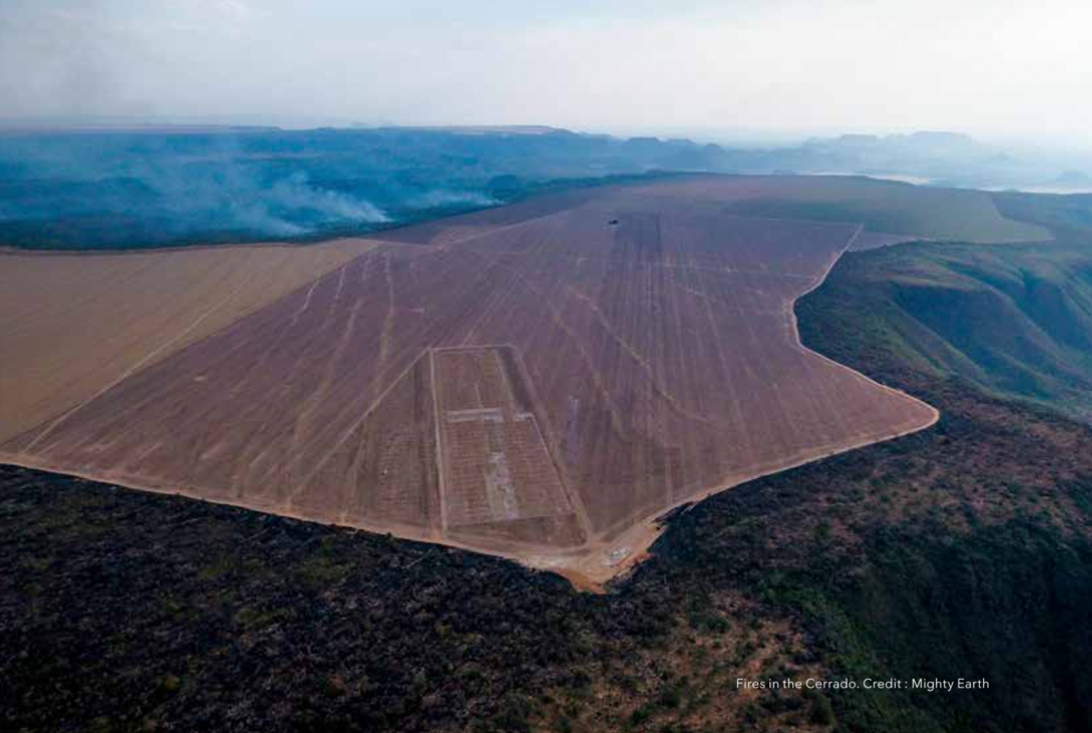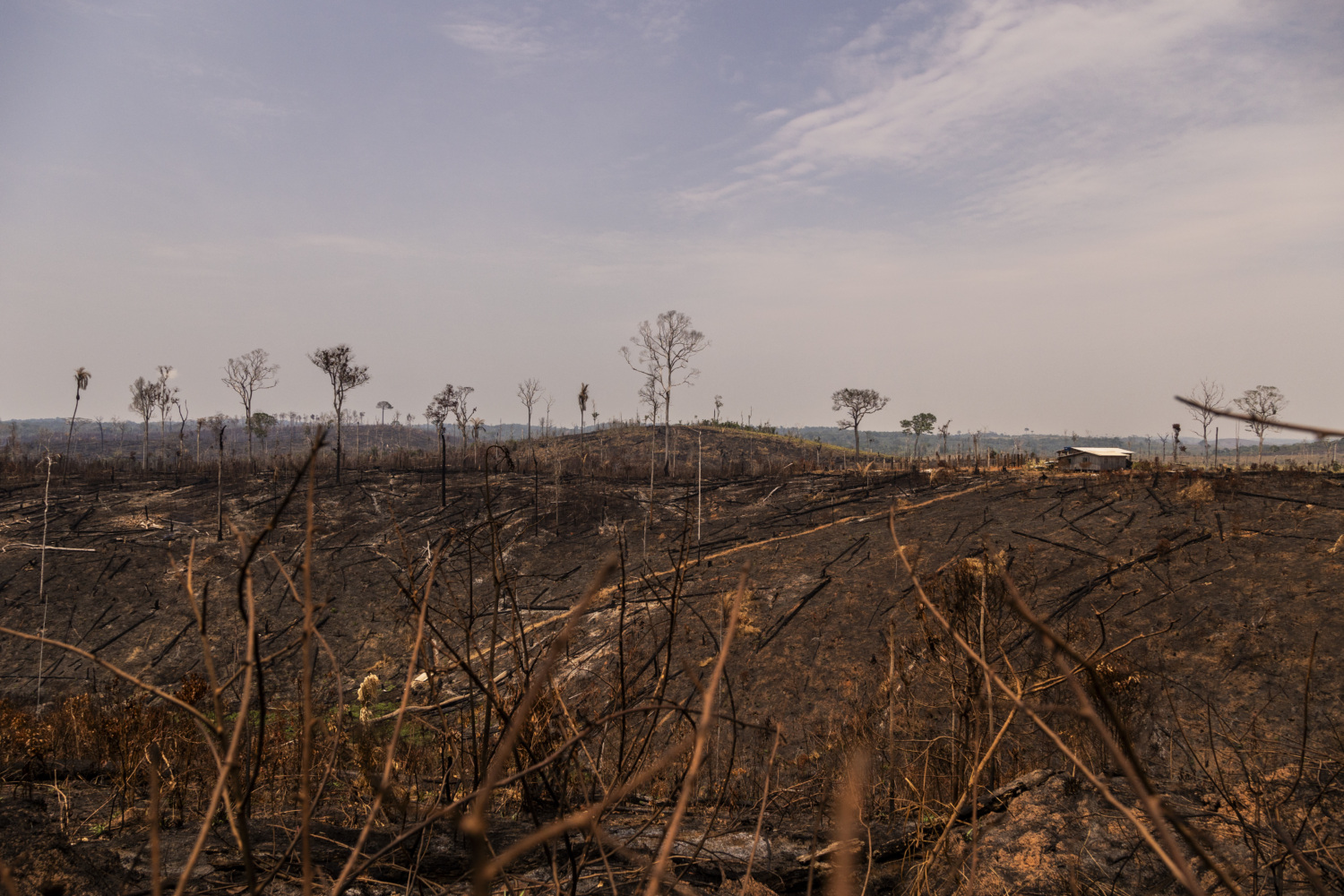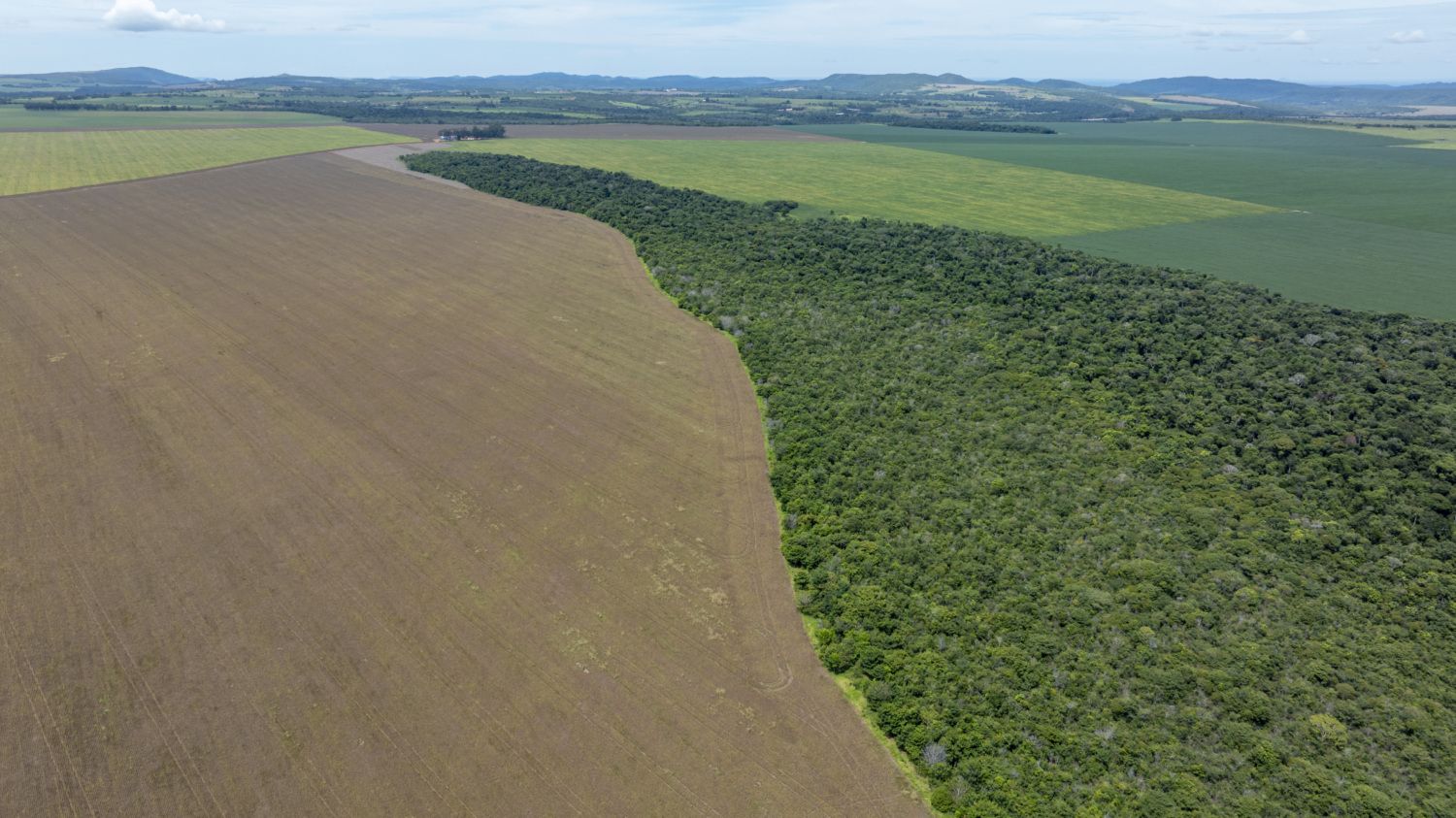
Soy traders’ new commitment on deforestation and ecosystem conversion at COP28 could be the death knell for the Cerrado in Brazil
12 December 2023
Mighty Earth warned today that a new commitment made by eight major soy traders at COP28 to halt deforestation by 2025 and conversion of natural ecosystems in the Amazon, Cerrado and Chaco caused by soy expansion by 2030 was disastrous and could spell the death knell for the Cerrado savannah in Brazil.
Mighty Earth raised the alarm that the small print in the commitment allows the eight soy traders – including ADM, Bunge, Cargill, COFCO and Olam – to continue to convert and destroy non-forest native vegetation in the Cerrado savannah up to 2030.
Alex Wijeratna, senior director at Mighty Earth said:
“It’s disastrous that the world’s biggest soy traders like Cargill and Bunge have given themselves until 2030 to continue to bulldoze and destroy Brazil’s most threatened and least protected biome, the Cerrado savannah, where deforestation and ecosystem conversion rates are now twice as bad as the Amazon rainforest.”
“This new soy traders’ commitment at COP28 allows them to continue clearing, burning, and destroying non-forest ecosystems until 2030 and could be the death knell for the Cerrado, threatening the lives and livelihoods of Indigenous communities and pushing countless plant and animal species to the brink of extinction.”
Mighty Earth released a report in June which highlighted Bunge’s role in the widespread destruction of the Cerrado and drew attention to the record rates of deforestation and ecosystem conversion there linked to soy expansion. The Cerrado has lost half of its land surface to the meat industry, largely to grow soy as animal feed.
Mighty Earth has also joined the global deforestation standard setting organisation the Accountability Framework initiative (Afi) in highlighting that the new soy traders’ commitment made at COP28 was not aligned with the Paris Agreement goal of limiting temperature rises to below 1.5°C, that the 2030 non-forest conversion deadline was highly problematic, and that other threatened biomes in South America like the Pampas, Atlantic Forest and Chiquitano in Bolivia need to be included, too.
Alex Wijeratna concluded:
“The soy traders need to rip up this COP28 soy document and instead should urgently commit to an immediate ban on all soy-related deforestation and natural ecosystem conversion throughout their global soy supply chains.”


